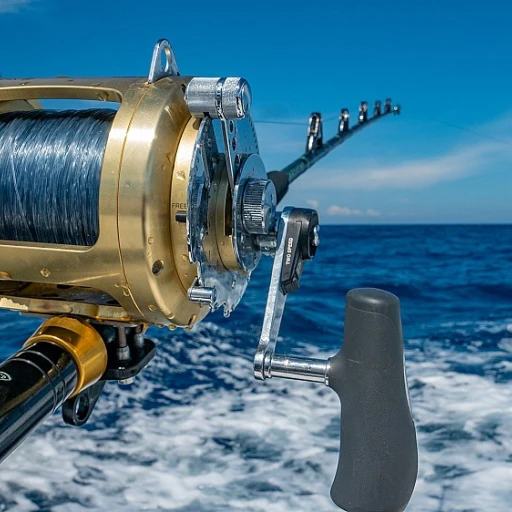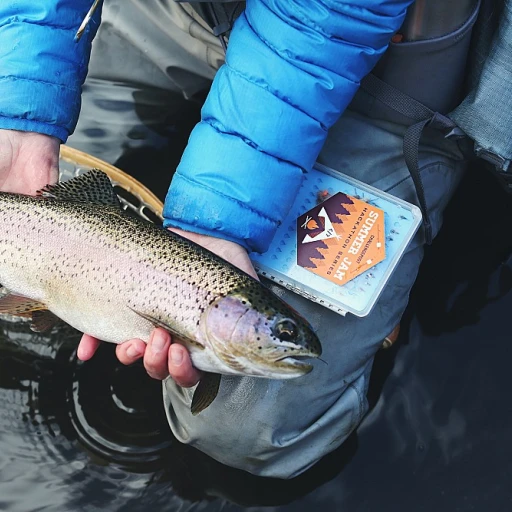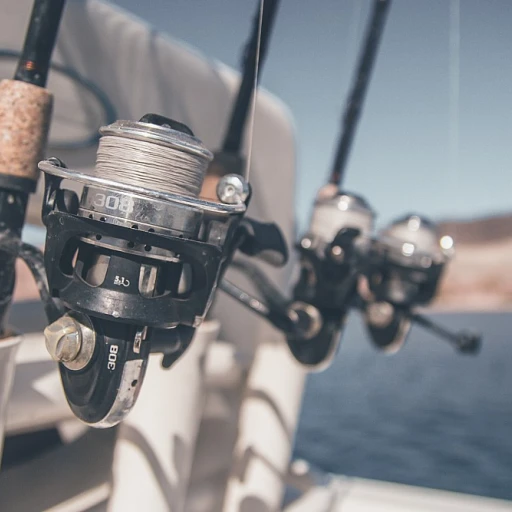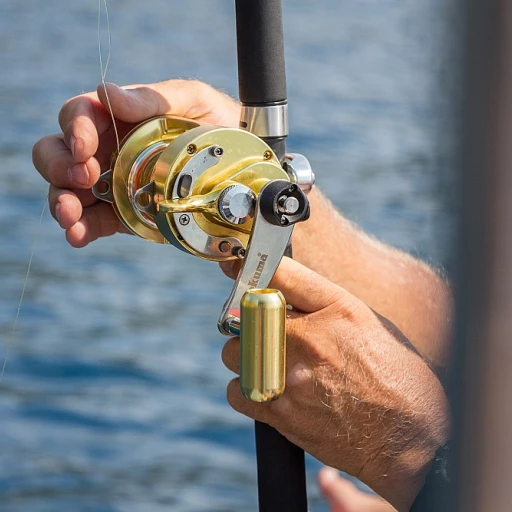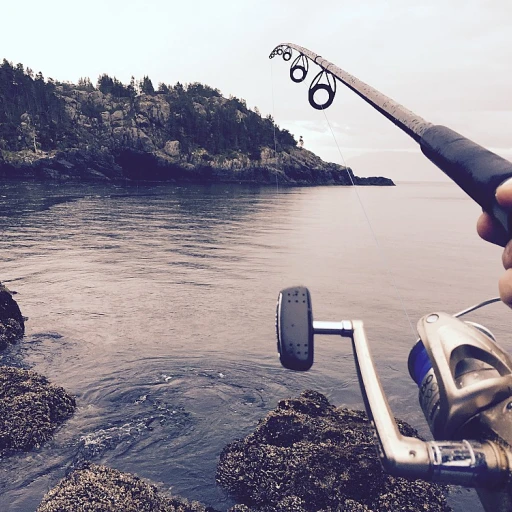
The most legendary catches in fishing history
The titans of fishing: unforgettable catches that made history
Ken Fraser’s Atlantic bluefin tuna
Back in 1979, Ken Fraser from Nova Scotia, Canada, reeled in a monster Atlantic bluefin tuna off the coast of Nova Scotia. This behemoth, weighing 1,496 lbs (680 kg), set a world record for the biggest bluefin tuna ever caught by rod and reel. Fraser’s catch remains unbeaten and is often cited by fishing enthusiasts and the International Game Fish Association (IGFA) as a pinnacle of angling achievement.
Alfred Dean’s great white shark
In 1959, Australian angler Alfred Dean caught a 2,664 lbs (1,208 kg) great white shark in Ceduna, Australia. Using a rod and reel, Dean’s catch is the heaviest recorded great white shark ever. This enormous predator was caught within 50 minutes, showcasing Dean’s incredible skill and determination. Today, his remarkable feat remains a benchmark in the fishing community.
George Perry’s largemouth bass
In June 1932, George Perry caught a 22 lbs 4 oz (10.1 kg) largemouth bass in Montgomery Lake, Georgia. This fish not only set the record for largemouth bass but also became a legendary achievement in bass fishing history. Perry’s catch held the top spot for the largest largemouth bass until it was tied in 2009 by Manabu Kurita’s catch in Japan, weighing the exact same.
Warren Carver’s lake trout
Warren Carver’s lake trout catch in 1995 still stands as a world record. Caught on rod and reel in the cold waters of Great Bear Lake, Canada, the 72 lbs (32.6 kg) fish underscored Carver’s expertise and perseverance. Lake trout fishing requires precise techniques and Carver’s triumph exemplifies the pinnacle of this sport.
Kevin Brotz and his monstrous catfish
Kevin Brotz stunned the fishing world in 2021 with his record-breaking catch of a 143 lbs (64.8 kg) blue catfish in Kerr Lake, Virginia. The immense fish broke previous records and highlighted the growing trend of targeting gigantic catfish across North America. Brotz’s achievement reinvigorated interest in catfish fishing and demonstrated the evolving potential for new records.
Paul Harrison and the Pacific blue marlin
On a sunny day in July 1982, Paul Harrison reeled in a stunning 1,376 lbs (624 kg) Pacific blue marlin off Cabo Blanco, Peru. This catch stands as a hallmark of big-game fishing and remains one of the most sensational marlin catches ever. Harrison’s dedication and technique in landing such a powerful fish continue to inspire anglers worldwide.
Milo Hansen and the world-record whitetail
Milo Hansen’s 1993 world-record whitetail deer in Saskatchewan, Canada, might not be a fish story, but it’s a legend in its own right. Caught with a rifle, the 213 5/8 inch (541.9 cm) Boone and Crockett scored buck is the largest ever on record. Hansen’s achievement underscores the deep-rooted traditions and thrills in the hunting and fishing world.
These legendary catches significantly impacted the fishing community, setting benchmarks that inspired anglers worldwide. Many of these records remain unbeaten, standing as a testament to the skill, perseverance, and, at times, sheer luck of those anglers who achieved the seemingly impossible.
" }Record-breaking fish: the giants of the water
Record-breaking fish: the giants of the water
Great white sharks: kings of the ocean
When we talk about the biggest fish ever caught, we can't ignore great white sharks. These majestic predators reign supreme in the oceans, and their size can be truly mind-blowing. The largest great white shark ever caught was in 1959 off the coast of South Australia. This behemoth measured a staggering 16.8 feet and weighed over 2,663 pounds (1,208 kg).
Ken Fraser, one of the most notable names in the fishing world, famously caught a 1,496-pound Atlantic bluefin tuna in Aulds Cove, Nova Scotia, in 1979. This catch remains one of the iconic records under the International Game Fish Association (IGFA) banner.
Mammoth freshwater fish: catfish and lake trout
In the world of freshwater fishing, catfish and lake trout hold several impressive records. The largest catfish ever caught was a massive Mekong giant catfish in Thailand’s Mekong River. In 2005, this giant weighed in at 646 pounds (293 kg) and measured around 9 feet long.
When it comes to lake trout, the record holder is a 72-pound (32.65 kg) behemoth captured in 1995 by angler Lloyd Bull in Great Bear Lake, Northwest Territories, Canada.
Bluefin tuna: the heavyweight champs
Bluefin tuna are some of the most sought-after and valuable fish species in the world. The record for the biggest bluefin tuna ever caught goes to angler Ken Fraser, who landed a massive 1,496-pound (679 kg) Atlantic bluefin tuna in 1979 off Nova Scotia, cementing his place in fishing history.
Unique and diverse record catches
Fishing records aren’t only about size; sometimes, it's about the rarity and uniqueness of the catch. For instance, the Pacific blue marlin, caught by angler Jay de Beaubien in Hawaii in 1982, weighed 1,805 pounds (819.2 kg). Similarly, the heaviest tiger shark ever recorded was a 1,780-pounder (807 kg) caught by Walter Maxwell in 1964 off Cherry Grove Pier in South Carolina.
Controversies and debates
The fishing community is ripe with debates and disputes surrounding record catches. Questions often arise about the validity of records, especially when it comes to IGFA weigh-in standards and methods. For example, there have been controversies over whether certain large catches were truly weighed correctly or if some records were unfairly excluded due to technicalities.
Discover more details about another giant catch: the biggest muskie ever caught and meet the anglers behind these monumental achievements. Their stories bring to light the thrilling pursuits and challenges faced by fishermen worldwide.
The science behind the biggest fish
The giants of the water world
When it comes to understanding the largest fish ever caught, it's all about recognizing the various species that hold the record for their immense size. From great white sharks to enormous bluefin tuna, these giants are not just fish; they're legends of the water.
The largest great white shark ever caught weighed an astounding 2,664 pounds and was caught off the coast of South Australia in 1959. This iconic catch remains a favorite topic among anglers showcasing the sheer power and majesty of this predator.
Cracking scientific mysteries
Scientists and researchers have long been fascinated by these ocean behemoths. For example, the study of freshwater lake trout from northern Canada indicates environmental factors like water temperature and availability of prey can lead to significant variations in size. The largest recorded lake trout, weighing in at 102 pounds, was caught in Lake Superior by Lloyd Bull in 1929.
Understanding the sheer size of these catches requires extensive knowledge of marine biology. Researchers from the International Game Fish Association (IGFA) have stated that fish longevity and their dietary habits are crucial factors contributing to their growth. For instance, larger species such as the bluefin tuna can live for up to 40 years, giving them ample time to grow to record-breaking sizes.
Tagging and tracking efforts
Efforts to tag and track record-sized fish provide scientists with valuable data. In Florida, studies on Goliath groupers have shown remarkable migration patterns and growth rates, helping us understand these underwater giants better.
Another impressive catch was the blue marlin in Cabo Blanco, Peru, caught by Ken Fraser in 1953, weighing 1,560 pounds. Such examples demonstrate not only the potential size but also the distribution of these incredible species.
Fishing technology advancements
Contemporary technology has also played a pivotal role in catching and verifying these giant fish. Innovations in rod and reel mechanics have enabled anglers to land fish that would have seemed impossible just a few decades ago.
Moreover, the IGFA's certification process ensures that all record-breaking fish are verified with precision, measured accurately, and documented properly. It's this dedication to detail that keeps records trustworthy and makes every catch an event worth celebrating.
Honorable mentions
Then there's the remarkable Pacific blue marlin caught in Hawaii, believed to weigh over 1,800 pounds. Or the tiger shark caught in the waters of Queensland, Australia, weighing about 1,784 pounds 0 ounces.
Every record-breaking catch has a story—whether it’s the methods used, the unique environmental conditions, or even the angler's sheer determination. These legends not only stretch our imagination but also inspire future generations of fishers to pursue the ultimate fishing trip.
Techniques and tackle for landing record fish
Luring the giants: mastering bait and lures
When it comes to landing the biggest fish ever caught, choosing the right bait and lures can make all the difference. Anglers swear by a variety of techniques, from live bait to specialized artificial lures. According to a study by the International Game Fish Association (IGFA), using live bait such as mackerel or squid significantly increases the chances of hooking a record-breaking fish.
Robust rods and reels
The importance of having the right rod and reel setup cannot be overstated. Ken Fraser, who caught the legendary 1,496-pound Atlantic bluefin tuna off Nova Scotia in 1979, attributes his success to a customized heavy-duty reel. This reel not only had the strength to withstand the battle but also the smooth drag needed to tire the fish without snapping the line.
Perfecting your drag system
One key aspect often overlooked by many anglers is the drag system on their reel. A properly set drag can be the difference between landing that enormous fish and watching your line snap under pressure. According to IGFA guidelines, it’s advised to set the drag to one-third of the breaking strength of your line. For instance, if you are using a 60-pound line, your drag should be set to 20 pounds.
Handling the fight: techniques to tire the fish
Once hooked, the fight truly begins. Anglers like Frank Mundus, who famously caught a 3,450-pound great white shark off the coast of Montauk, advocate for employing proper angling techniques to tire out the fish. Mundus’ approach involved letting the fish run and then reeling in as it tired, a method many successful anglers continue to use.
Specialized gear and accessories
Landing a large fish often requires more than just a rod and reel. Having a strong gaff, heavy-duty gloves, and even a harpoon can be essential. For example, a goliath grouper, which can weigh up to 800 pounds, will demand the use of a securely anchored boat and a harpoon to bring it onboard safely.
Angler stories: tales of victory and near misses
One of the most thrilling aspects of fishing for giants is hearing the stories from those who have succeeded. Anglers often recall heart-stopping moments when the fish almost escaped or the line nearly snapped. These stories are not just entertaining but also serve to share valuable lessons with aspiring record-breakers.
Controversies and debates in record fish catches
Disputes over species identification
One of the most debated aspects in record fishing is the correct identification of species. Misidentification can lead to a fish being inaccurately recorded and celebrated. This was the case with the supposed record-breaking curvirostris in Thailand, which was later identified as a different species, the critically endangered giant ikan, causing quite an uproar among conservationists.
Ethical concerns
The ethics of catch and release practices have sparked heated discussions within the fishing community. Some argue that stressing fish for the sake of breaking records can cause long-term harm to the species, while others maintain that catch and release, when done properly, minimizes impact. Guiding angler behavior is the International Game Fish Association's (IGFA) role, setting standards to ensure ethical, sustainable practices are followed. According to Dr. Michael Domeier, a renowned marine biologist, "We need to balance our pursuit of record-breaking with our responsibility to protect these magnificent creatures."
Cheating allegations and authenticity of records
Allegations of cheating are not uncommon in the world of record fishing. The most notable controversy involved Ken Fraser's 1,496-pound Atlantic bluefin tuna caught off Nova Scotia in 1979. Despite being recognized by the IGFA, questions arose regarding the authenticity of the catch, with some suggesting Fraser had outside help. Such allegations, whether proven or not, cast shadows over the achievements and highlight the need for stringent verification processes.
Another controversial case is that of the white shark caught by Alfred Dean off Ceduna, Australia in 1959. Weighing a staggering 2,664 pounds, this catch has faced scrutiny over claims of unsanctioned assistance. Despite these claims, the record still stands, thanks to corroborating witnesses and photo evidence. Check the ultimate guide to record muskie catches for more intriguing stories.
The impact of technology and modern techniques
Advancements in technology have played a significant role in how record fishing is conducted and validated. The use of modern gadgets, such as sonar and high-tech fishing gear, has leveled the playing field, yet it has also led to accusations of diminishing the sport's traditional essence. Critics argue that relying heavily on technology undermines the skill involved in fishing, but proponents believe it enhances the ability to secure accurate records while ensuring humane practices.
Ecological and conservation implications
The pursuit of record-breaking catches has also raised concerns regarding its impact on fish populations and ecosystems. Overfishing of particular species, like the Pacific blue marlin and great white shark, threatens their numbers and disrupts marine environments. The delicate balance of maintaining sports fishing traditions while safeguarding aquatic life is an ongoing debate that requires continuous monitoring and adaptation of fishing regulations.
Controversies surrounding record fish catches are a testament to the intense passion and dedication within the fishing community. From ethical dilemmas to technological debates, each aspect adds complexity to this beloved sport, reminding us of the need to balance ambition with respect for nature.
Case studies of notable record fish
Ken Fraser’s incredible bluefin tuna
Ken Fraser's name is synonymous with one of the most mind-blowing records in the world: the largest bluefin tuna ever caught on rod and reel. On October 26, 1979, off the coast of Nova Scotia, Canada, Fraser reeled in a colossal 1,496-pound bluefin tuna. This gigantic catch remains unbeaten and continues to fascinate both amateur anglers and seasoned pros. Fraser's technique, patience, and strength were integral to this remarkable catch, which the International Game Fish Association (IGFA) has celebrated ever since.
The wild world of great white sharks
In 1959, Alfred Dean from Australia forever etched his name in the fishing records by catching the biggest great white shark ever documented. Weighing a jaw-dropping 2,664 pounds, this apex predator was caught off the coast of Ceduna, South Australia. The sheer size and strength of this great white shark required not just skill but a bit of luck, proving why Dean's catch stands the test of time and continues to inspire record-chasers globally.
Trout legend: Lloyd Bull's record
Fans of freshwater fishing often refer to Lloyd Bull's 1949 achievement when conversations turn to lake trout. His 72-pound lake trout, caught in Great Bear Lake, Canada, has remained the gold standard. Trout anglers dream of breaking this record, and stories of Bull's tenacity on that icy Canadian lake have turned almost mythical in local fishing communities. No doubt, the allure of landing a record-setting lake trout keeps many an angler returning season after season.
A giant from Thailand: the Mekong giant catfish
In 2005, a Thai fisherman set tongues wagging worldwide by catching a mammoth Mekong giant catfish. This freshwater behemoth weighed in at 646 pounds, making it the biggest recorded catfish ever caught. The size of this fish not only stands as a testament to the rich biodiversity of the Mekong River but also raises questions about conservation efforts aimed at protecting such species from overfishing and habitat destruction in Asia.
Catching controversy: Blaine Horton's debate-stirring blue marlin
In 2021, Blaine Horton caught a massive 1,368-pound blue marlin off the coast of Cabo Blanco, Peru, stirring up a storm of controversy within the fishing community. While the fish's sheer size would make it a new record, debates erupted about the methods used and possible violations of IGFA rules. This case brought attention to the often-unspoken issues surrounding record validation and the lengths some anglers might go to etch their name in history. IGFA officials continue to scrutinize Horton's catch, reminding the community that ethics and regulations are as important as the fish itself.
Trout's triumphant return: Martin Lydon's lake trout
Witnessing Martin Lydon's 2022 catch of a 57.5-pound lake trout in New York's Finger Lakes region was akin to reliving a freshwater fishing fairytale. Although he didn't surpass Lloyd Bull's legendary record, Lydon’s catch reignited public interest in the potential of North American lakes to house giants. This catch, celebrated by the IGFA, has encouraged local anglers to cast their hopes and lines, dreaming of the possibility of topping the elusive 72-pound mark.
The future of record fish
From the shores of Florida to the icy waters of Greenland, anglers are continually pushing boundaries in the quest for the biggest fish ever caught. As techniques and tackle evolve, and with mounting global interest, it's only a matter of time until new giants surface to redefine what we know about these aquatic wonders. The role of the International Game Fish Association remains crucial in preserving the integrity of these records and promoting environmentally responsible fishing practices onto the next generation of anglers.
To read about the journey of the world record lake sturgeon, check out this in-depth article.
The role of the International Game Fish Association (IGFA)
How the International Game Fish Association keeps records
The International Game Fish Association (IGFA) plays a crucial role in the world of record-breaking fish catches. Founded in 1939, the IGFA has been the leading authority on ethical angling practices and the keeper of angling records. Their meticulous processes and stringent criteria ensure that only the largest and most impressive catches make it into the record books.
The IGFA maintains thousands of records for different fish species from around the globe. To be considered for a record, anglers must follow specific guidelines, including using certified scales for weighing the fish and providing photographic evidence. A notable example is Ken Fraser’s 1,496-pound Atlantic bluefin tuna caught in Nova Scotia, Canada, which remains one of the most famous records.
Steps to get your fish considered by the IGFA
Getting a fish officially recognized by the IGFA requires adhering to their detailed protocols. After catching a potential record fish, the angler must immediately prepare for proper documentation. This includes:
- Weighing the fish on an IGFA-certified scale
- Taking clear photographs of the fish, the scale reading, and the angler with the catch
- Gathering witnesses to verify the catch
- Submitting the required forms and evidence to the IGFA, including a complete application form
- Submitting a sample of the fishing line used
One past example illustrating these steps involved a great white shark caught by Alfred Dean off the coast of Australia, which weighed a staggering 2,664 pounds. Dean meticulously followed IGFA criteria, ensuring his catch went down in history.
Controversies and controversies in record submissions
Despite the IGFA's rigorous standards, controversies can arise. Disputes sometimes occur over the validity of a record or the methods used to catch the fish. For instance, some catches have faced scrutiny due to allegations of rule violations, such as using illegal bait or gear. One such case featured a Pacific blue marlin caught off Hawaii, which faced skepticism regarding the legitimacy of the equipment used.
Even the seemingly straightforward act of properly weighing a fish can be contentious. For example, the record for the largest lake trout, caught in Canada, was subjected to thorough investigation to ensure accuracy and rule compliance. These situations exemplify the challenges the IGFA faces in maintaining the integrity of its records while fostering fair sporting practices.
Transparency and evolution of record-keeping
In recent years, the IGFA has enhanced transparency in its record-keeping processes. By leveraging modern technology and digital record-keeping, they’ve streamlined application procedures and reduced discrepancies. This move towards a more open and accessible system ensures that the official records remain reliable and respected within the fishing community.
Future of record-breaking fish catches
Technological advancements in fishing gear
The future of record-breaking fish catches largely hinges on modern technology and advancements in fishing gear. With innovations in materials and design, anglers today have access to equipment which is lighter, stronger, and more efficient than ever before. Take for example, the case of the Pacfic blue marlin caught weighing 1,376 pounds, a feat made possible partly due to the development of superior fishing rods and reels.
Conservation and sustainable practices
While the quest for breaking records continues, there is a growing emphasis on conservation and sustainable fishing practices. Agencies like the International Game Fish Association (IGFA) have been at the forefront, promoting ethical fishing while keeping an eye on record-breaking catches. This means that future records might not just be about the size of the fish, but also about how responsibly it was caught. The IGFA constantly revises its guidelines to ensure a balance between thrill and ecological sustainability.
Changing fish populations and habitats
Climate change and human activities are altering fish habitats, making some species harder to catch and others more abundant. For instance, the migration patterns of the White Shark have shifted, affecting where these giants can be reliably located and caught. As water temperatures rise and habitats change, future record-breaking fish might come from places we least expect.
Globalization and accessibility
The global fishing community is more connected than ever before thanks to the internet and social media. Fishermen from Thailand to Norway can share techniques, tips, and even real-time conditions, making it easier to plan trips to potentially record-breaking locations. This interconnectedness is likely to play a major role in where and how future records are broken.
Technological tracking and reporting
Another exciting development is the use of advanced tracking systems for fish populations. Devices that record and report fish movement can help anglers find record-worthy species with greater precision. This not only helps in knowing where to fish but also in understanding the best times and techniques to use.
The human element
Despite all technological and scientific advancements, the human element remains crucial. Future record-breaking catches will depend not just on gear and knowledge, but on the passion, dedication, and perseverance of the anglers themselves. Personal stories, experiences, and the sheer joy of being on the water will continue to inspire and drive the quest for the biggest fish ever caught.


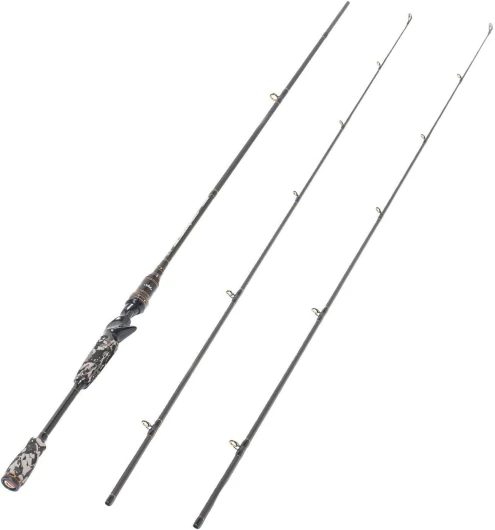
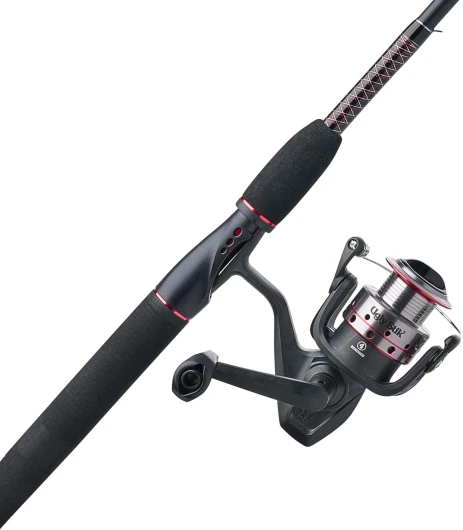
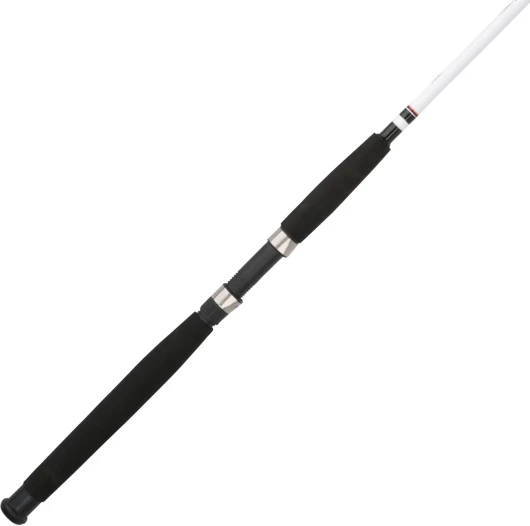
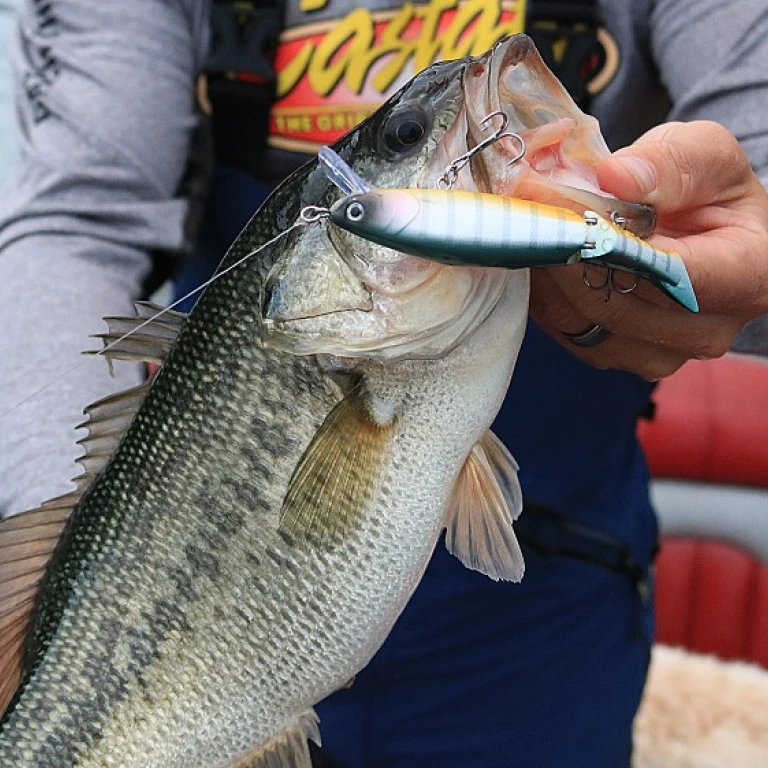

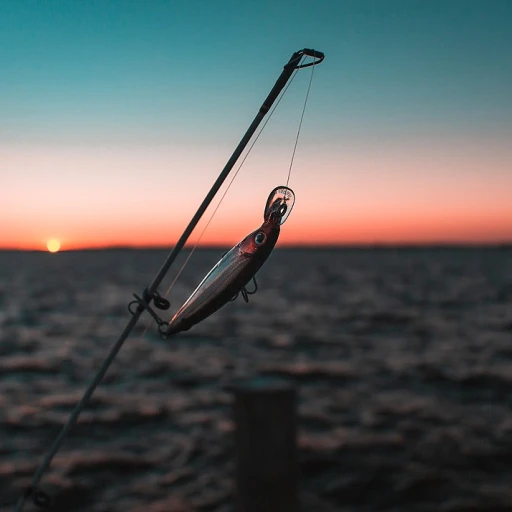
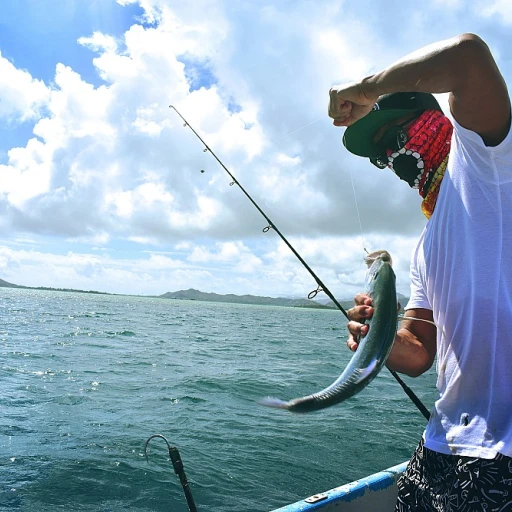
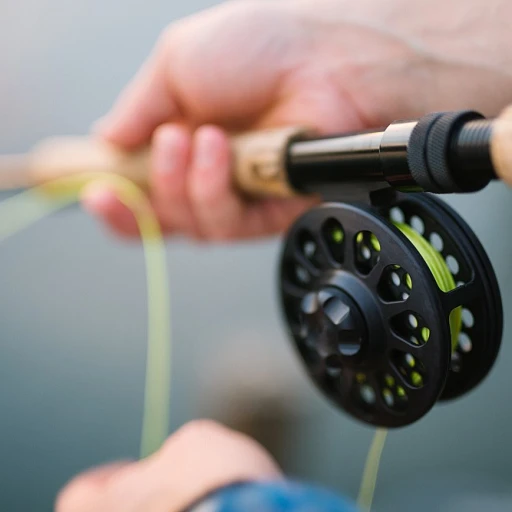
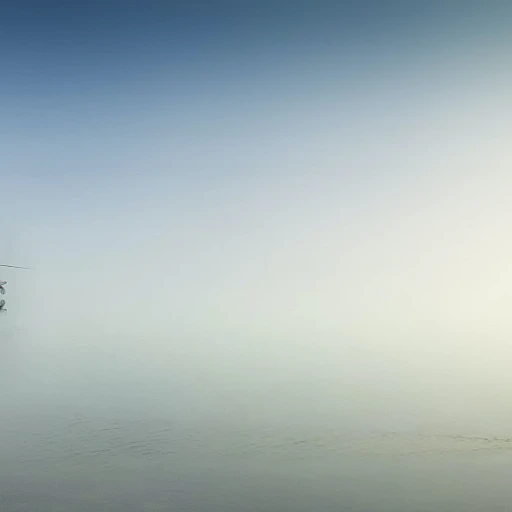
-large-teaser.webp)
